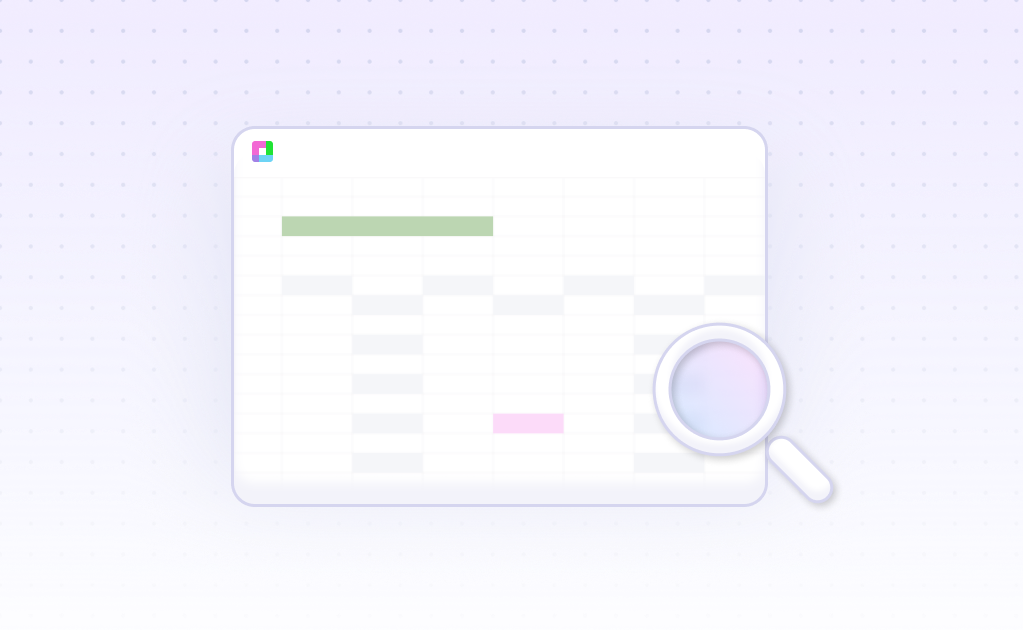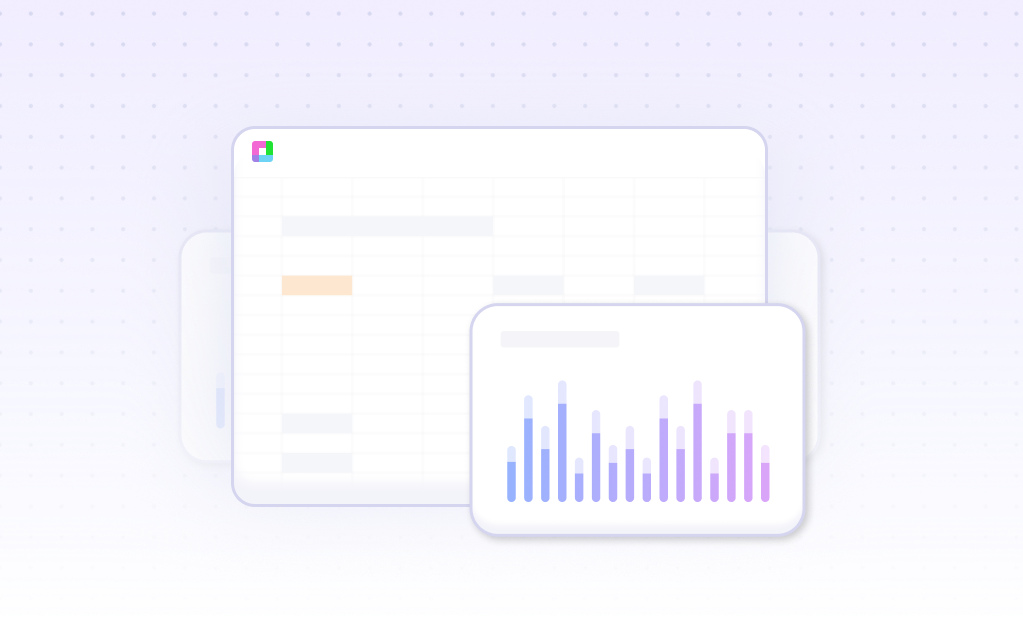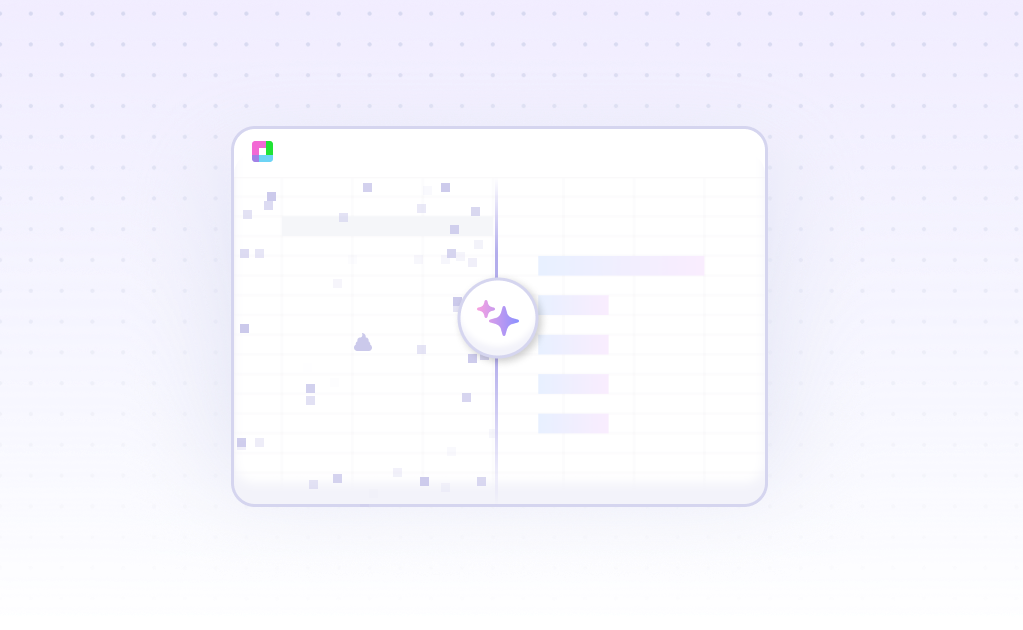
Managing aircraft maintenance is like conducting a symphony where every instrument must be perfectly timed. Miss a beat, and the entire performance suffers. In aviation, that missed beat could mean grounded aircraft, escalating costs, and operational chaos.
Traditional maintenance tracking often involves juggling multiple spreadsheets, paper logs, and disparate systems. But what if you could orchestrate all your maintenance data in one intelligent platform? With AI-powered analysis, you can transform maintenance scheduling from reactive firefighting to proactive optimization.
Why Choose AI for Aircraft Maintenance Analysis?
Discover the key benefits
Predictive Maintenance Scheduling
Anticipate maintenance needs before issues arise. AI analyzes flight hours, cycles, and historical data to predict optimal maintenance windows, reducing unexpected groundings by up to 40%.
Cost Optimization
Identify cost-saving opportunities across your fleet. Track parts inventory, labor costs, and vendor performance to negotiate better rates and eliminate waste.
Compliance Automation
Never miss a regulatory deadline again. Automatically track AD compliance, inspection intervals, and certification renewals with intelligent alerts and reporting.
Fleet Performance Insights
Compare aircraft performance across your fleet. Identify high-maintenance aircraft, optimize utilization, and make data-driven decisions about acquisitions or retirements.
Aircraft Maintenance Analysis in Action
Let's walk through some real-world scenarios where intelligent maintenance analysis makes all the difference. These examples show how data-driven decisions can transform your operations.
Example 1: Optimizing Engine Overhaul Scheduling
Picture this: You manage a fleet of 25 regional aircraft. Each engine has different flight hours, cycles, and performance characteristics. Without proper analysis, you might schedule overhauls based on manufacturer recommendations alone, potentially leaving money on the table.
Using statistical analysis, you can:
Result: One regional carrier extended their engine intervals by an average of 200 hours, saving $2.3 million annually while maintaining full compliance.
Example 2: Parts Inventory Optimization
Imagine carrying $5 million in parts inventory but still experiencing stockouts on critical components. This common scenario results from poor demand forecasting and supplier analysis.
Smart inventory analysis reveals:
Example 3: Regulatory Compliance Tracking
Consider managing compliance across multiple aircraft types, each with different inspection requirements, ADs, and SBs. Manual tracking becomes overwhelming and error-prone.
Automated compliance analysis provides:
Your Path to Smarter Maintenance Analysis
Discover the key benefits
Import Your Data
Connect your maintenance management system, import CSV files, or manually enter data. Sourcetable handles all common aviation data formats and automatically structures your information.
AI-Powered Analysis
Our AI analyzes patterns in your maintenance data, identifies optimization opportunities, and generates predictive insights. No complex setup or data science expertise required.
Interactive Dashboards
Visualize your fleet's maintenance status with dynamic charts and reports. Drill down into specific aircraft, components, or time periods with simple clicks.
Actionable Recommendations
Receive specific recommendations for scheduling, parts ordering, and cost reduction. Each suggestion includes projected savings and implementation steps.
Common Aircraft Maintenance Analysis Scenarios
Discover the key benefits
Fleet Utilization Analysis
Optimize aircraft scheduling based on maintenance windows. Identify aircraft with upcoming maintenance and adjust flight schedules to minimize operational impact while maximizing revenue opportunities.
Vendor Performance Evaluation
Compare maintenance providers across cost, quality, and turnaround time. Identify your best-performing vendors and negotiate better terms based on data-driven insights.
Component Life Cycle Management
Track component performance from installation to removal. Identify components that consistently exceed or fall short of expected life limits to optimize replacement strategies.
Maintenance Budget Forecasting
Predict future maintenance costs based on flight schedules, aircraft age, and historical patterns. Plan budgets with confidence and avoid unexpected expenses.
AOG Event Analysis
Analyze Aircraft on Ground events to identify root causes and prevention strategies. Reduce AOG frequency and duration through data-driven maintenance improvements.
Regulatory Audit Preparation
Generate comprehensive compliance reports for regulatory audits. Demonstrate due diligence with detailed maintenance records and trend analysis.
Frequently Asked Questions
How does AI improve aircraft maintenance scheduling compared to traditional methods?
AI analyzes thousands of data points including flight hours, cycles, environmental conditions, and historical maintenance patterns to predict optimal maintenance timing. Unlike traditional calendar-based scheduling, AI considers actual aircraft usage and performance, often extending intervals safely while reducing costs by 15-30%.
Can I integrate data from my existing maintenance management system?
Yes, Sourcetable connects with most aviation maintenance systems including AMOS, Ramco, and others. You can also import data via CSV, Excel files, or API connections. Our system automatically maps common aviation data fields and validates information for accuracy.
What types of maintenance cost analysis can I perform?
You can analyze labor costs, parts expenses, vendor pricing, hangar utilization, and total cost of ownership. The system tracks costs per flight hour, per aircraft, and per maintenance event, helping you identify cost reduction opportunities and budget more accurately.
How accurate are the predictive maintenance recommendations?
Our AI models achieve 85-95% accuracy in predicting maintenance needs, depending on data quality and history. The system continuously learns from your specific fleet and improves predictions over time. All recommendations include confidence levels and supporting data.
Is the system compliant with aviation regulations?
Sourcetable supports compliance tracking for FAA, EASA, and other regulatory requirements. However, it's a decision support tool - all maintenance decisions must still be approved by appropriately certified personnel. The system helps track compliance but doesn't replace regulatory oversight.
How long does it take to see results from maintenance analysis?
Basic insights appear within hours of importing your data. Predictive models become more accurate after 3-6 months of data collection. Most customers report measurable cost savings within the first quarter of implementation.
Transform Your Maintenance Operations Today
Aircraft maintenance doesn't have to be a constant source of stress and unexpected costs. With intelligent analysis, you can shift from reactive maintenance to proactive optimization.
Whether you're managing a small fleet or hundreds of aircraft, the principles remain the same: better data leads to better decisions, and better decisions lead to lower costs and higher reliability.
Start with your existing maintenance data. Import it into Sourcetable and let AI reveal the patterns and opportunities you've been missing. Within days, you'll have insights that took weeks to generate manually - if they were possible at all.
Frequently Asked Questions
If your question is not covered here, you can contact our team.
Contact Us




